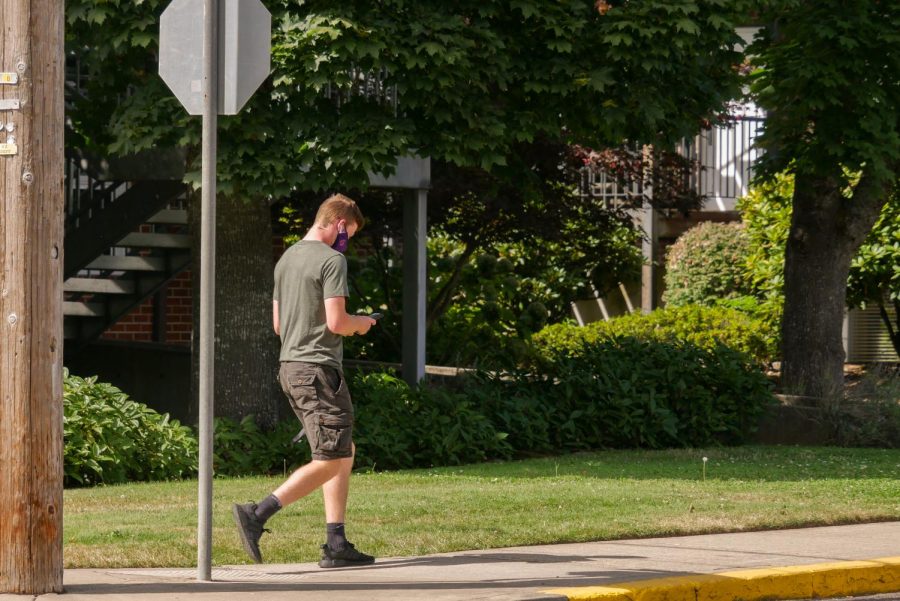Linfield eyes the closure of other universities, but remains optimistic about student responsibility during the pandemic
Students at Linfield are expected to wear masks at all times on campus unless they are in their dorm room with their roommate(s).
September 1, 2020
The arrival of August usually means the opening of schools across the country–but this year the month also brings the closures of many. As of August 26, the New York Times reports that there have been 20,000 COVID-19 cases linked to over 750 college campuses since the end of July. In total, there have been 64 deaths.
Several higher education institutions, such as the University of Oregon, have decided to only offer remote learning. Others opted for in-person instruction but pivoted to online shortly after classes started due to clusters of positive cases. University of North Carolina Chapel Hill sent their students home after one week.
Some remain open with hybrid in-person teaching models, like Linfield University.
The decision for Linfield to hold in-person classes was not taken lightly by the administration. “We don’t prefer online learning,” said Susan Hopp, Vice President of Student Affairs. A survey sent to students in April showed the majority of respondents were in favor of returning to campus in the fall, as opposed to continuing online classes.
Incoming freshmen and their parents played a part in the decision as well. After a stressful end to their senior years of high school, freshmen were excited about starting college, said Hopp. But it’s not as if people weren’t concerned, she added.
“We looked at our mission,” Hopp said. “The kind of education we provide is very personalized.” The sense among students, staff, and faculty is that online teaching does not fit the “Linfield Experience.”
Linfield appears to be in the majority among small, residential colleges, said Scott Nelson, Chief Marketing Officer and Associate Vice President. “As far as I know in Oregon, only University of Portland has announced plans to go online-only.”
“I believe everyone else is in the same situation we are,” Nelson said. “That’s true, for the most part, nationwide.”
Many of the schools that had to cancel in-person learning shortly after starting have markedly different demographics than Linfield. “We are not 30,000-plus students,” said Hopp. “There’s no way you can have conversations with students at a school that big. It’s just not comparable with what we have.”
“We are asking students to be intentional about their role. We understand this is not fun,” said Hopp. “We believe we have responsible students–students who usually understand the reasoning for things.”
Hopp believes the risk is not from students physically attending class, but from social events. Off-campus agencies will monitor for parties to reduce the likelihood of COVID transmission. Parties involving alcohol have been linked to increased cases.
Another potential risk is students believing that a negative test result means they don’t have to social distance or wear masks around other students who test negative. “Testing is just the first thing,” said Hopp. “We still have to do all the other things to remain healthy.”

